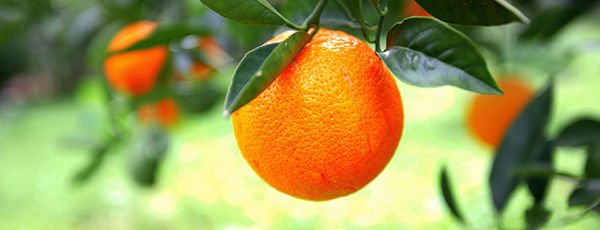Prevent Weeds with Pre-Emergent Treatments to Combat Citrus Yield Loss
August 31, 2023

Florida citrus growers, who represent a significant percent of citrus growers in the U.S., understand the importance of staying ahead of weed pressures. Researchers at the University of Florida have found that untreated weeds can result in a yield loss of up to 33 percent, which equates to losing almost 40 acres of trees in one season for the average Florida grower.1
Weeds compete with trees for nutrients, water, light and grove space and can damage the tree, impact yield and hinder regular harvesting practices. Weeds can even compete with target plants for uptake of insecticides and other chemicals, making the crop more susceptible to insects and disease.2
While cultural and mechanical practices can provide some help in managing weed pressures, most growers utilize herbicides to deal with major threats. Herbicides are typically divided into two groups: post-emergent, which attack established weeds, and pre-emergent, which prevent germination. Post-emergent or contact herbicides are applied directly to the visible parts of the plant. Pre-emergent herbicides are applied directly to the soil, where they are absorbed by emerging stems or roots.2
Roy Morris, a Crop Science technical sales representative located in Florida, counsels growers across eight counties on best practices for dealing with weed pressures. He recommends including a pre-emergent herbicide spray for two reasons.
“Using a pre-emergent spray greatly reduces the number of herbicide applications on the crop because of the residual effect of spraying the soil instead of the weed. When using this type of residual program, the herbicide lasts in the soil for several months, preventing the weeds from germinating,” said Morris.
“A contact program only kills the weeds that are in the spray area, increasing the number of times a grower has to spray each season,” Morris said. “A residual program, on the other hand, greatly reduces the number of applications needed. A reduction in the number of applications reduces spray load, which reduces a grower’s cost and carbon footprint.”
Pre-emergent sprays also allow growers to get ahead of the heavy ushes of weeds that occur during Florida’s rainy season, typically from May to August. During these rainy months, it’s often too wet to apply herbicides directly to the weeds that thrive in wet conditions. Utilizing a pre-emergent-residual program enables growers to continue managing weeds, even in harsh weather environments.
In his territory, Morris recommends growers use Alion® herbicide from Crop Science. Alion is a broad-spectrum, pre-emergent herbicide that can be mixed with a contact herbicide for protection from weeds that are lurking below the soil as well as weeds that have already emerged.
“Alion has been an effective herbicide in our citrus industry, as long as it’s applied properly,” Morris said. “You’ve got to get it in contact with the soil, ahead of the weed germination. If you do it right, it’s pretty impressive.”
Learn more about how a long-lasting, pre-emergent solution like Alion can help eliminate weeds in your citrus groves.